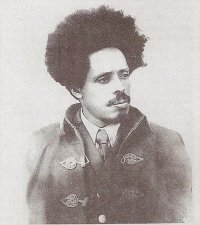Abebe Aregai
| Abebe Aregai | |
|---|---|
 |
|
| 2nd Prime Minister of Ethiopia | |
|
In office 27 November 1957 – 17 December 1960 |
|
| Monarch | Haile Selassie I |
| Preceded by | Makonnen Endelkachew |
| Succeeded by | Imru Haile Selassie (acting) |
| Minister of Defence | |
|
In office 1955 – 17 December 1960 |
|
| Prime Minister |
Makonnen Endelkachew Abebe Aregai |
| Preceded by |
Abiye Abebe (Minister of War) |
| Succeeded by | ? |
| Minister of the Interior | |
|
In office 1949–1955 |
|
| Prime Minister | Makonnen Endelkachew |
| Preceded by | ? |
| Succeeded by | ? |
| Minister of War | |
|
In office 1947–1949 |
|
| Prime Minister | Makonnen Endelkachew |
| Preceded by | ? |
| Succeeded by | Abiye Abebe |
| Governor of Tigray | |
|
In office 1943–1947 |
|
| Preceded by |
Haile Selassie Gugsa Seyoum Mengesha (Tigray) |
| Succeeded by | Seyoum Mengesha |
| Governor of Sidamo | |
|
In office 1941–1942 |
|
| Preceded by |
Pietro Gazzera (Fascist Governor) |
| Succeeded by | ? |
| Lord Mayor of Addis Ababa | |
|
In office 1941–1941 |
|
| Preceded by |
(Fascist Governor) |
| Succeeded by | Takele Woldehawariat |
| Personal details | |
| Born |
18 August 1903 Abdella, Shewa, Ethiopia |
| Died | 17 December 1960 (aged 57) Guenete Leul Palace, Addis Ababa, Ethiopia |
| Political party | Independent |
| Religion | Ethiopian Orthodox |
Ras Abebe Aregai (18 August 1903 – 17 December 1960) was an Ethiopian military commander who, during the Italian occupation, led a group of resistance fighters (collectively known as the Arbegnoch or "Patriots") that operated in Menz and Shewa. He later served as Prime Minister of Ethiopia from 27 November 1957 until his death. He was a victim of the unsuccessful 1960 Ethiopian coup.
Abebe was born on 18 August 1903 in the village of Abdella in northern Shewa. His father was Aregay Becherae and his mother was Askale Gobena, whose father was the noted military commander Ras Gobena Dacche. He served in the Kebur Zabagna, rising to the rank of Major before transferring to the police, and by 1935 had been granted the title of Balambaras. He was the chief of police of Addis Ababa when the Italians invaded Ethiopia in 1936.
Balambaras Abebe remained in the capital after the departure of Emperor Haile Selassie but departing for the northeast with ten men before the Italians occupied the capital. He took part in the unsuccessful attempt to retake the capital in July of that year, and his soldiers almost reached the Imperial Palace before being beaten back by two Italian battalions.
After this action, Abebe's activities are hard to follow due to contradictory evidence. This is due in large part to the reticence of the survivors in their memoirs about individuals and events: when Emperor Haile Selassie proclaimed a general amnesty upon his restoration, as Thomas L. Kane explains, "many of those who served the Italians loyally right up to the last minute took advantage of this proclamation to escape punishment, and ... [often achieved] positions of power.... In order to avoid offending one of these figures, or even the loyal relatives of some collaborator, the name of a principal in some incident will be deliberately omitted, though some reason such as 'this would be a humiliation for Ethiopia' may be given."
...
Wikipedia
